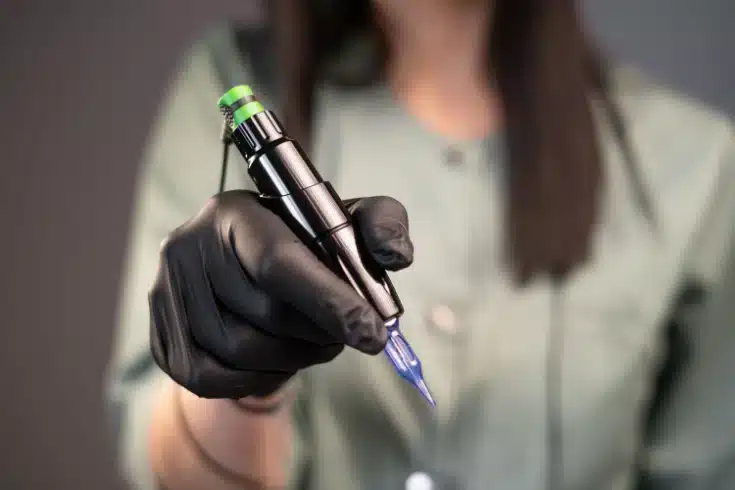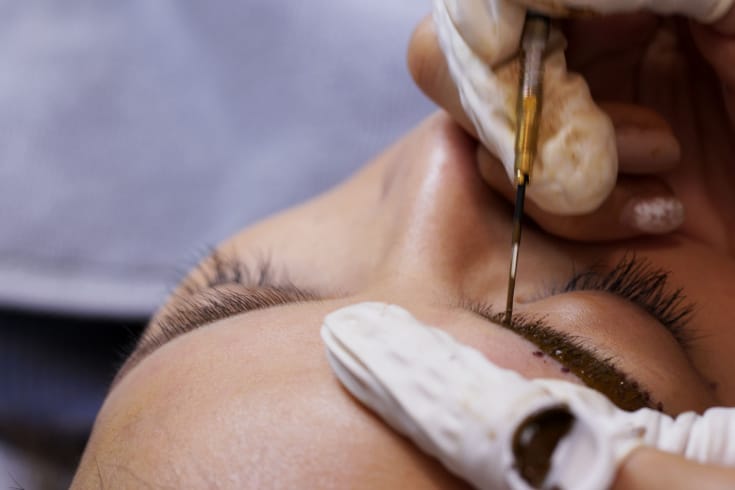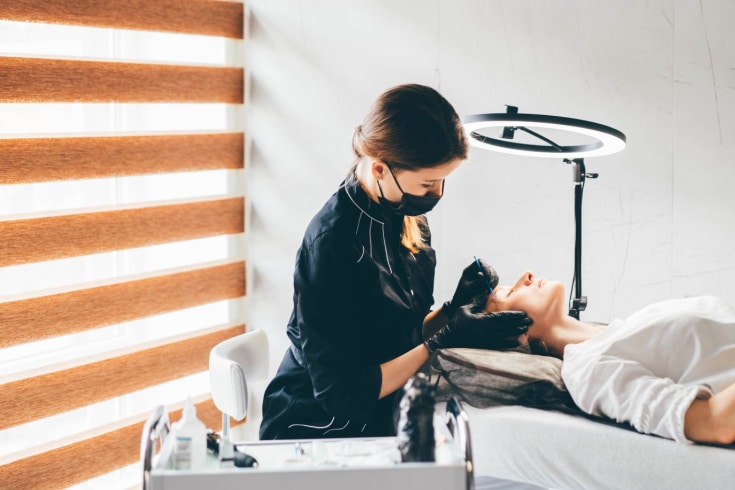Is Permanent Makeup Considered a Medical Practice? Understanding the New Notification from the Ministry of Health, Labour and Welfare that Beauty Clinics Should Heed

Art makeup for eyebrows and eyeliner can be easily performed at beauty clinics, and because it doesn’t wash off with water and also reduces makeup time, it has become increasingly popular.
On July 3, Reiwa 5 (2023), the Ministry of Health, Labour and Welfare issued a new notice regarding the handling of so-called art makeup by individuals without a medical license.
Here, we will explain in detail what art makeup is and the impact of this new notice.
What is Permanent Makeup?

Permanent makeup is a cosmetic technique involving the injection of pigment into the skin, which includes the drawing of eyebrows and eyeliners.
In permanent makeup, specialized needles are used to implant color into the superficial layers of the skin. These procedures are somewhat invasive and ensuring safety standards, which should be maintained by medical professionals, is extremely important.
The Difference Between Cosmetic Tattooing and Tattoo Procedures
While both cosmetic tattooing and traditional tattoos involve inserting pigment into the skin using needles, there are significant differences in their purposes and methods of application.
Cosmetic tattooing is performed as part of beauty treatments, primarily to enhance facial features such as eyebrows and eyeliner. The procedure targets the epidermis, the superficial layer of the skin, and the pigment fades gradually over a few years.
On the other hand, traditional tattoos involve implanting pigment into the deeper layer of the skin, the dermis, resulting in color that lasts for an extended period. Tattoos have been perceived as a social custom with decorative, symbolic, or artistic significance, rather than an act associated with medical or health guidance. Historically, tattoos have been applied by artists without medical licenses for many years. Consequently, legal precedents have established that tattooing does not constitute a medical practice.
Reference: Supreme Court Decision, September 16, 2020 (Reiwa 2)[ja]
The Difference Between “Medical Acts” and “Medical Practices”
What is the difference between “medical acts” (医行為) and “medical practices” (医療行為) as mentioned in the notice? The term “medical acts” is not defined by law, but it is defined in a notice by the Ministry of Health, Labour and Welfare as follows:
An act that, unless performed with a physician’s medical judgment and skill, could harm the human body or potentially cause harm, is considered a medical act. Engaging in such acts with the intention of doing so repeatedly and continuously constitutes “medical practice.” According to Article 17 of the Japanese Medical Practitioners’ Act (医師法), “No one other than a physician may engage in medical practice,” thus prohibiting non-physicians from performing medical practices.
Ministry of Health, Labour and Welfare “Clarification of the Scope of Medical Acts, etc.”[ja]
On the other hand, the definition of “medical practices” is not necessarily clear and refers to “acts performed based on medical science for the treatment, diagnosis, or prevention of human diseases and injuries.” This includes all medical activities, encompassing alternative medicine and integrated medicine.
In other words, “medical acts” refer to special acts that can only be performed by individuals with specific qualifications (for example, a medical license), while “medical practices” is a broader concept that includes everything from general health management to specialized treatments.
Permanent makeup has been involved with medical professionals such as physicians and nurses as part of medical care and has been considered a “medical practice.” However, with this notice, it has been reaffirmed that permanent makeup falls under the category of “medical acts.”
What is Art Makeup, Deemed a Medical Practice by the Ministry of Health, Labour and Welfare?

On July 3, Reiwa 5 (2023), the Ministry of Health, Labour and Welfare issued a notice regarding the handling of so-called art makeup by individuals without a medical license. This notice affirms that the practice of art makeup by unlicensed individuals can be considered a medical act.
Specifically, the notice states that “since medical professionals such as doctors and nurses are involved as part of medical care, the act cannot be denied as a medical practice.” In other words, if individuals without a medical license perform art makeup as a business, it could potentially violate Article 17 of the Japanese Medical Practitioners’ Act.
Furthermore, if the act is considered a medical practice and is conducted as a business by individuals without a medical license, it could constitute a violation of Article 17 of the Japanese Medical Practitioners’ Act. The following two practices, which involve inserting pigment into the skin’s surface with a needle, are cited as examples:
- Drawing eyebrows
- Drawing eyeliner
Summary: Permanent Makeup by Unlicensed Practitioners Constitutes a Violation of the Medical Practitioners’ Law
This notification does not significantly deviate from traditional interpretations or precedents, but it does represent an official view expressed by the Ministry of Health, Labour and Welfare. Beauty clinics that offer permanent makeup services must comply with this notification.
Furthermore, esthetic salons and similar establishments must be cautious not to use advertising that could be mistaken for medical services, as this would be illegal. Since there are various regulations concerning advertising expressions, we recommend a legal review by an attorney to ensure compliance.
Guidance on Measures by Our Firm
Monolith Law Office is a law firm with extensive experience in both IT, particularly the internet, and legal matters. We provide services such as legal checks for articles and landing pages (LPs), creation of guidelines, and sampling checks for clients including media operators, review site operators, advertising agencies, and direct-to-consumer (D2C) businesses such as supplement and cosmetic manufacturers, clinics, and ASP service providers. Details are provided in the article below.
Areas of practice at Monolith Law Office: Legal Checks for Articles & LPs in Accordance with the Japanese Pharmaceutical and Medical Device Act, etc.[ja]
Category: General Corporate





















